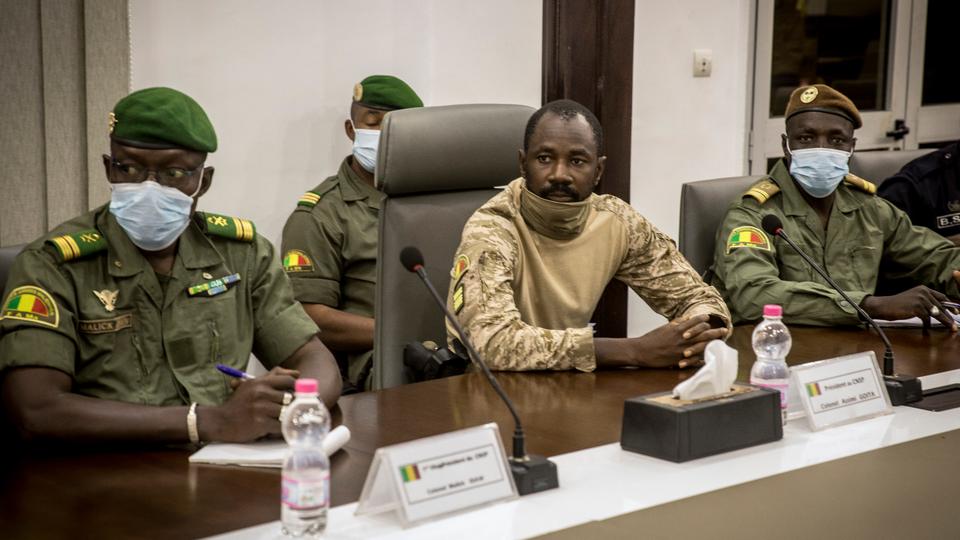By Alexander Onukwue
Burkina Faso had been trying to move on from the stasis of a 27-year dictatorship that ended when street protests forced Blaise Compaoré to resign and go into exile in October 2014. In the year after that event, military officers staged a coup against an interim post-Compaoré government, before apologizing and returning power to that interim government. It allowed Burkinabes to elect and swear Roch Marc Christian Kaboré in as the country’s third civilian president.
But on Jan. 24 this week—hours after Burkina Faso won a dramatic penalty shootout to reach the Africa Cup of Nations quarter finals in Cameroon—the 64-year-old Kaboré was deposed by mutinous soldiers. Like the soccer match, the coup was welcomed on the streets of Ouagadougou, the capital city.
Kaboré was re-elected in 2020 to a second five year term but was already losing the confidence of his countrymen in the war against jihadist insurgency. Under his leadership, the once stable country of 21 million was becoming a hotbed of crisis, featuring gruesome killings by armed groups and over 1 million people internally displaced due to conflict and poverty.
But if this were a movie script, Burkina Faso isn’t an original, judging by its close neighbors Mali, and Guinea. Each has been overrun by the military within the last 18 months.
Anger at weak, self-serving leaders has been a common thread
Each coup has been about particular local circumstances, says Paul Melly, a consulting fellow at Chatham House’s Africa program who studies the Sahel region.
In Mali, it stemmed from frustration at former president Ibrahim Boubacar Keita’s weak leadership in a security crisis, and resentment over his corruption and manipulation of parliamentary election results, while the coup in Guinea was a reaction to Alpha Conde’s attempt to change the constitution for a third term.
“But as one coup has succeeded another, this has generated a broader sense of destabilization and soldiers contemplating putsch attempts may increasingly feel empowered to do so,” Melly says.
This may help explain why Burkinabe soldiers became emboldened to overthrow Kaboré. To be sure, Burkina Faso has a history of coups, including at least four in the 1980’s alone which saw the rise and fall of national hero Thomas Sankara.
But this week’s coup was different because it happened “at a very serious time of increased terrorist attacks” said Mvemba Phezo Dizolele, director of the Africa Program at Center for Strategic and International Studies. One attack last November killed 53 people, including 49 military police officers.
Dizolele and other analysts trace the increase in terrorism in west Africa to the aftermath of Muammar Gaddafi’s fatal removal in Libya in 2011. That and what is now regarded as a failed Arab Spring in north Africa and the Middle East led to a migration of terror-affiliated groups towards Niger, Chad, and Mali, spreading frequent attacks and strengthening militant insurgencies across the sub region. Beginning sometime in 2016, a rivalry between Al-Qaeda and the Islamic State helped worsen the turbulence.
And as governments struggle to contain the wave of terror, ungoverned spaces proliferate cutting millions of citizens off from any semblance of governance, leading to local versions of terror and armed banditry like in northern Nigeria where over 1,000 villagers were killed in the first 6 months of 2020, according to Amnesty International. 200 bodies were found this January in one state.
Neighbors to coup countries and Ecowas will be on higher alert
Will this wave of coups spread to other west African countries? Melly says there were “profound crises” in Mali, Guinea, and Burkina Faso creating conditions that encouraged soldiers. That may not be the case in Nigeria or Cote d’Ivoire or Ghana “but their governments cannot afford to be complacent.”
The Economic Community of West African States (Ecowas) has denounced each coup, imposing heavy sanctions in Mali’s case as punishment for postponing elections previously scheduled to be held this year. Sanctions “will have a severe economic impact and hurt private sector business,” Melly says, though Burkina Faso could avoid one if its new rulers agree and stick with a timeframe for a return to constitutional rule with the regional body.
That said, Ecowas has also come under fire for taking a reactive approach to democracy and the rule of law in its region, one that may need to change in order to check the wave of coups.
“Organizations like Ecowas are quick to react during military coups but they do not react to the failure of governance across the region,” Dizolele said. “We’ve seen constitutional coups, where civilian leaders in power tamper with the constitution to stay longer while not really responding to the needs of the population. So there’s a serious need for reframing the way international institutions engage countries in the region.”
Credits | Quartz Africa

